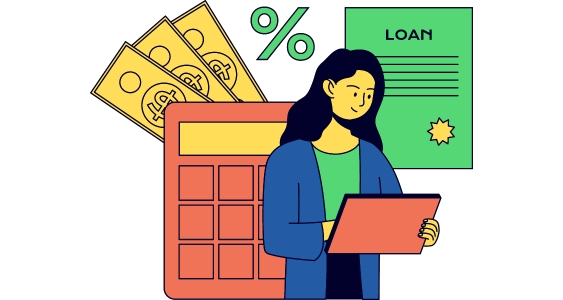The journey to owning a home is filled with excitement, anticipation, and many financial decisions. One pivotal decision is determining the right time to apply for house loans.
These are financial aid provided by banks or financial institutions to help you purchase your dream home. They cover a significant portion of the property’s cost, which you must pay back over time, with interest.
So, this article aims to guide you through the optimal moments for considering home loans, ensuring your financial readiness, and maximizing the benefits.
Right Time to Apply for Home Loans

Financial Stability
The foundation of your home loan application is your financial health. The ideal time to apply is when you have a stable income, a strong credit score, and a manageable level of debt. This stability reassures lenders of your ability to repay the amount, potentially leading to more favorable terms and interest rates.
Interest Rates
Keep an eye on the market’s interest rates. Applying for a loan when rates are low can save you a significant amount of money over your repayment tenure. However, predicting market trends can be challenging, so consider consulting with a financial advisor to make an informed decision.
Down Payment Accumulation
The more you can afford to pay as a down payment, the less you’ll need to borrow. A substantial down payment reduces your repayment amount and may qualify you for lower interest rates. So, you should wait till the time you have enough to cover at least 20% of the home’s price before applying.
Market Conditions
The dynamics of the real estate market play a crucial role in the timing of your application. Understanding these fluctuations can significantly impact your home-buying experience and financial outcomes. The following are a few factors to consider:
- Economic Influences: Economic health directly affects the real estate market. In a robust economy, increased employment rates and higher disposable income encourage more people to buy homes, often leading to a seller’s market. On the other hand, during economic downturns, a buyer’s market may emerge as fewer people are looking to purchase homes, leading to lower prices and more negotiation power for buyers.
- Seasonality: The real estate market also shows a strong seasonal pattern. Typically, spring and summer are peak buying seasons, with more listings available and higher competition, potentially leading to higher prices. Conversely, the market tends to cool down during fall and winter, presenting potentially better buyer deals.
- Demand and Supply Dynamics: The balance between the number of available properties (supply) and the number of prospective buyers (demand) further dictates market conditions. A surplus of homes with fewer buyers creates a buyer’s market, where you can leverage lower prices and more room for negotiation. Conversely, when available homes are scarce, but buyer interest is high, sellers can command higher prices, and bidding wars may ensue, characterizing a seller’s market.
Personal Readiness

Beyond financial factors, consider your situation. Are you planning to stay in the same area long-term? Is your job stable? Do you foresee any significant changes in your living situation? It might be the right time to apply if you’re confident in your stability and readiness to commit to home ownership.
Pre-Approval
Before beginning your search for a new home, it’s advisable to seek pre-approval for a loan. This step clarifies your budget range and demonstrates to sellers your commitment as a buyer. However, pre-approval does not guarantee loan approval; it’s a preliminary step in the right direction.
Conclusion
Aiming for efficient applications for house loans requires a balance of personal, financial, and market considerations.
By assessing your financial health, keeping an eye on interest rates, and saving for a down payment, you lay the groundwork for a substantial loan application.
Additionally, understanding market trends, evaluating your readiness, and looking out for government incentives further empower you to choose the best time to apply for home loans strategically.
See Also: A Beginner’s Ultimate Guide to Understanding Home Insurance










